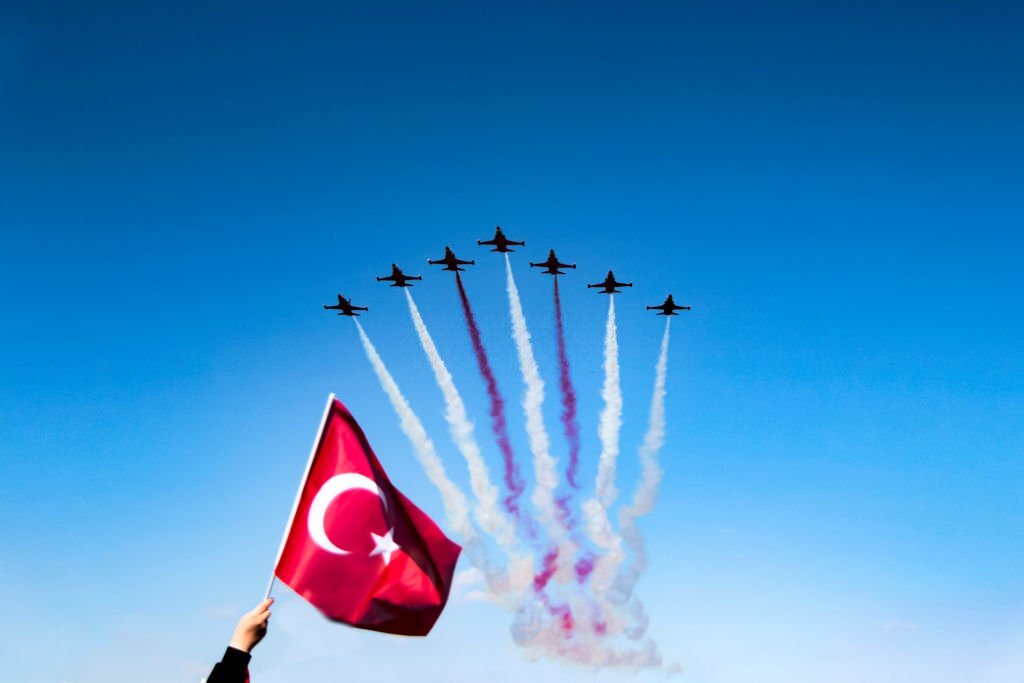Table of Contents
ToggleTurkey also known as the republic of Turkiye is a country that has southeastern borders towards Europe. It has the black sea to its north and Georgia to its northwest. Turkey has a rich and diverse background. It has been home to important neolithic sites such as Gobekli Tepe and ancient civilizations. It was in November 1922 that the Turkish war of independence against allied powers consequently resulted in the abolition of the sultanate. This happened with the efforts of Mustafa Kemal Ataturk that Turkey became a secular state with a unitary and parliamentary republic.
The land of Turkey other than the official language Turkish has many other languages that people speak in the country. It has been home to the world’s best languages as well as the languages that have become extinct now. Hittite is one of the extinct languages that came from the Indo-European language family The other Anatolian languages also included Luwian, Lycian, Lyduuan, and Milyan. All of these languages have become extinct now. The Turkish culture has been the blend of the customs and traditions of all those people who invaded the land and stayed there.
Turkish
The official language of Turkey is Turkish. They decided it as per article 3 of the constitution of Turkey. Turkish is the most widely spoken Turkic language. It has around 80 to 90 million speakers. Also, it happens to be one of the national languages of Turkey and Northern Cyprus. However, smaller groups of speakers speak Turkish languages. They exist in Germany, Austria, Bulgaria, North Macedonia, Cyprus, and Greek as well as other parts of Europe.
There is the influence of Ottoman Turkish towards the west. They have variants of the Turkish language that have been used for administrative and literary language.
The vowel harmony and extensive agglutination are the distinctive characteristics of the Turkish language. The word order that the Turkish language follows is subject object and verb. There are no noun classes or grammatical gender in the Turkish language. This language also makes use of honorifics and has a strong T-V distinction that further distinguishes the different levels of politeness and social distance. However, all this information is not simple for someone who is new to this language or the country. Turkish translation services could be the ultimate solution if you intend to explore this culturally and historically rich land. The Turkish language also happens to be a member of the Oghuz group. The language has complicated classifications.
Arabic
Arabic is not only spoken in Turkey fondly but a lot of Arabic speakers in Turkey are Arab descendants.
Almost four Arabic dialects are spoken in Turkey.
These are
- North Levantine Arabic has 1130000 speakers.
- Modern standard Arabic has 686,000 speakers
- North Mesopotamian Arabic with 520,000 speakers
- Many additional Mesopotamian Arabic dialects are in practice by more than 100,000 people.
It was due to the Syrian refugees who came to Turkey for shelter that increased the influence of Arabic. They made this language more popular there and it continues to expand. The increasing popularity of the Arabic language has made the authorities introduce it as an elective language in Turkish schools and curriculums. Moreover, businesses also seek Arabic translation services to target the Arab speakers of Turkey. They understand how translating the text into the Turkish variant of Arabic can help them grow and excel in the target region.
Persian
Persian which is also known as the Farsi language is a Western Iranian language and belongs to the Iranian branch of Indo-Iranian languages. It is a pluricentric language and is predominantly spoken in Iran, Afghanistan, Tajisktan, and a few other countries including Turkey. The businesses also often have to opt for Farsi translation services to expand their services in Iran, Afghanistan, and other Farsi-speaking regions.
Ancient Kurdish people settled in Turkey speak Kurdish which is quite similar to the Persian language. This language has different dialects in the country with speakers who speak Iranian Persian too. Turkish and Persian languages have many similarities. Interestingly Turkish and Persian languages have loanwords from each other. Although these have no mutual intelligibility these languages have a lot in common due to the cultural exchanges. However, less than even 1% of the Turkish origin have Persian origin.
The experts also claim that Persian is affected by the Turkish language. All these impacts made Persian lose its grammatical features and it has become similar to the Turkish language, particularly the variant that they speak in Turkey. This is the result of the cultural exchange between Iranian and Turkic people. Iran and Turkey are neighboring countries so cultural and trade exchange is inevitable. Most of the collection of Persian words comes from the Arabic and Turkish languages. However, interestingly despite greater word collection from the Turkish language the mutual understanding between both languages is quite low. Persian translation services could be needed to understand the content if you are Persian and looking to go through some Turkish content.
Conclusion
Turkey is a country that has borders with Asian as well as European country too. It is a culturally diverse and historically rich country. It has been home to the world’s most popular languages. However, many of these have become extinct now. Arabic and Farsi are two of the important languages of Turkey along official language i.e Turkish. These languages have more than 50,000 speakers and people speak these there fondly.

CCJK is an industry leader in the localization industry providing a broad range of services including translation, localization, interpretation, and whatnot! Our native translators have subject matter expertise for a vast range of business industries and we provide fast, accurate, and affordable language solutions to boost your global growth.








